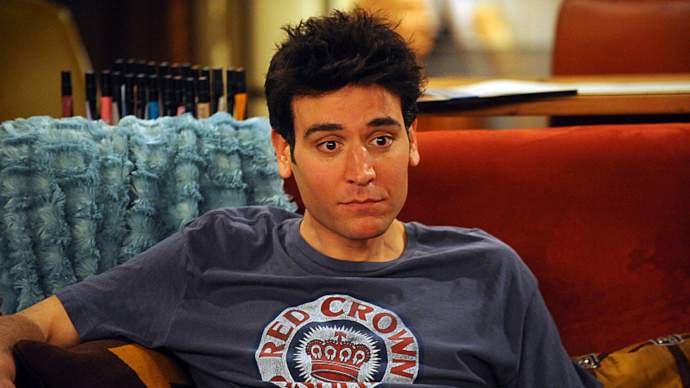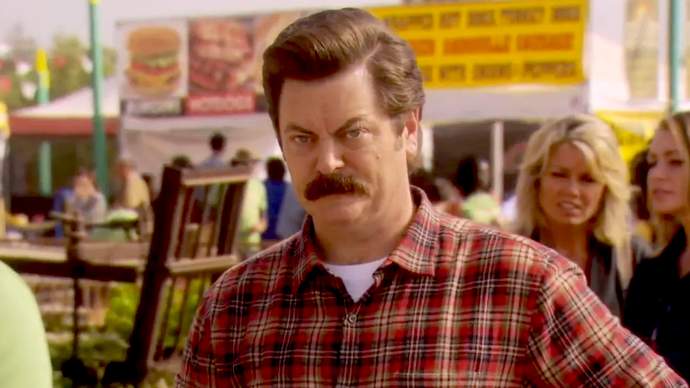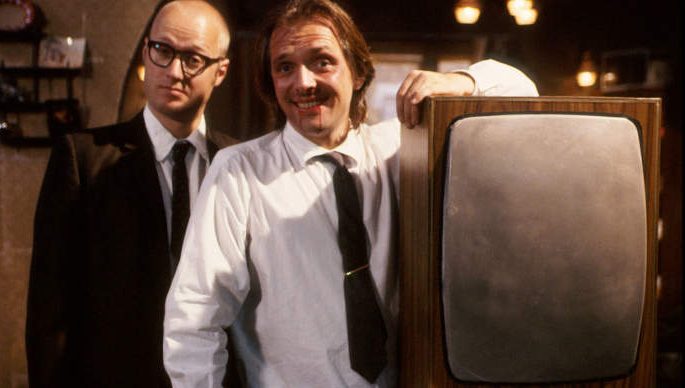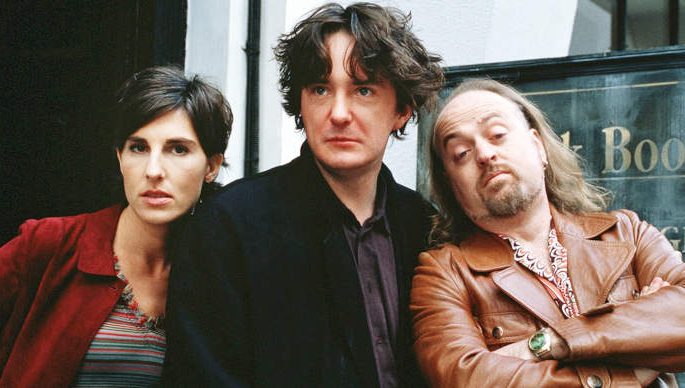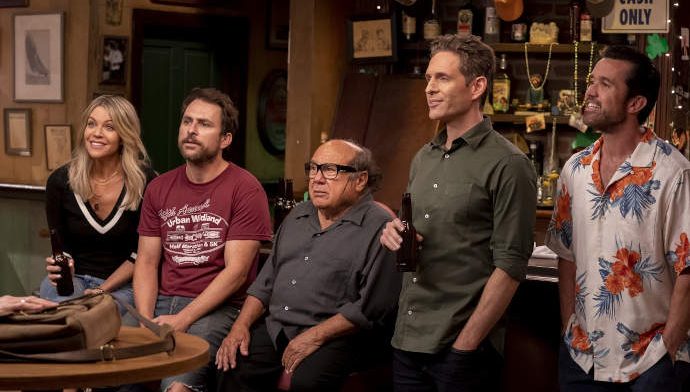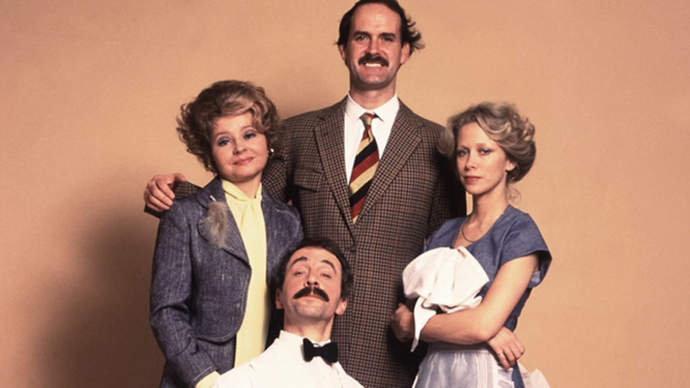Over the course of the show, traditional sitcom characters tend to grow into “better people”—and they might even fall in love along the way (often with another main character) so the show can end on a happy note. Positivity and laughter are the main goals of traditional sitcoms. But more recently, we’re starting to see what’s known as anti-sitcoms. The anti-sitcom often features main characters who are deplorable, obnoxious, or morally bankrupt. They don’t support each other, they don’t care for one another, and there’s a lack of sentimentality. Anti-sitcoms rarely have will-they-won’t-they romance subplots. If traditional sitcoms are optimistic, then anti-sitcoms are cynical. Nobody really learns from their mistakes and the characters may even devolve into greater depravity over the episodes. They constantly repeat the same issues time and time again, often to great comedic effect. Unsurprisingly, anti-sitcoms are polarizing. People tend to watch TV for escapism, and they turn to sitcoms for a bit of brightness in what might otherwise be a sad, dull, or dark life. The realness, dinginess, and unfriendliness of the anti-sitcom can be off-putting for someone who just wants lighthearted laughs. Indeed, while anti-sitcoms can be hilarious, they’re inherently challenging. Here are some of the best anti-sitcoms from over the years and why they have such appeal compared to traditional sitcoms.
5. Bottom (1991–1995)
With brilliant performances by Rik Mayall and Adrian Edmondson, Bottom became a staple of 90s British television. The show centers on Eddie and Richie, two housemates who are misogynistic, antagonistic, and violent. Their crude attempts to seduce women and improve their living standards are the source of comedy in this classic anti-sitcom, but a handful of aspects put Bottom into the category of anti-sitcom:
They have absolutely no empathy for one another;Any opportunity to cause the other physical pain or emotional suffering is swiftly seized;They love to kick the other when they’re down.
This banter between the two characters makes for laugh-out-loud interactions, but it also makes them deeply unlikable. Their penchant for slapstick violence—towards each other and towards strangers—firmly cements them as immoral individuals. With both Eddie and Richie being as bad as the other, they never learn from their constant failings. There’s no voice of reason in their lives because nobody wants anything to do with them. And there’s no will-they-won’t-they because women are repulsed by them in every sense of the word. Of course, they have every reason to be.
4. Black Books (2000–2004)
With Dylan Moran at the helm, the aptly named Black Books featured some of the best comedy of the early 2000s. However, the humor itself was pitch black and the show promoted terrible friendships. The central protagonist of Black Books is Bernard Black, an alcoholic misanthrope who runs a bookshop with his friends despite none of them having any real business acumen or people skills. Though there are occasional half-hearted attempts to better themselves, they almost always revert back to their pitiable states when the going gets tough. That’s what happens when each one is a self-centered figure who’s prone to mocking the others. And while there are moments when Fran and Manny act as voices of reason, they somehow end up getting swept up into Bernard’s schemes and immoral excesses nonetheless. The two of them gradually become worse off for having known Bernard, a signature trope of the anti-sitcom. Despite a short-lived run, the biting humor and sharp wit of Black Books makes it one of the funniest comedy shows of all time.
3. It’s Always Sunny in Philadelphia (2005–Present)
It’s Always Sunny in Philadelphia is today’s most well-known example of the anti-sitcom, and it’s usually the first show that comes to mind when anti-sitcoms are described. The cast of this show features:
Dennis, an arrogant bartender with antisocial personality disorder, who may or may not also be a psychopathic serial killer;Mac, an attention-starved and deeply insecure man who hides his cowardice behind outward toughness;Charlie, a dim-witted man-child who murders rats in the pub’s basement with a baseball bat;Dee, a narcissistic and petty woman who’s incredibly ignorant and prone to betray her racial prejudices;And Frank, an exploitative millionaire who’s guilty of numerous human rights violations.
The Gang (as they’re known) takes part in all kinds of deeds that are shameful, immoral, or downright illegal. That includes fighting gay marriage, setting people on fire, faking cancer for money, burning down an immigrant family’s house, and holding a mock funeral for a baby. The character of Dee was initially the voice of reason for the group, but she eventually grew to become one of the most despicable of the bunch. That alone cements It’s Always Sunny in Philadelphia as one of the best anti-sitcoms for its willingness to devolve into depravity. Fun fact! In 2021, It’s Always Sunny in Philadelphia became the longest-running live-action comedy series in American history. That just proves how successful anti-sitcoms can be!
2. Peep Show (2003–2015)
Peep Show is one of the weirdest TV series of all time. It’s even filmed in a style that goes completely against the grain—everything is shot using point-of-view (POV) angles, hence the title of the show. However, it’s not just the cinematography that sets Peep Show apart from traditional sitcoms. The impolite, unforgivable, zany characters solidify its status as one of the best anti-sitcoms of all time. Mark and Jeremy are flatmates in London, one boring and uncharismatic while the other lazy and entitled. They both start off normal enough, but over time, their unpleasant idiosyncrasies are left unchecked to fester, turning them into much worse versions of who they initially were. A lot of the humor comes from how they take advantage of others and how quick they are to commit acts of indecency. Co-creator Sam Bain tweeted that Peep Show is a look at “the stubborn persistence of human suffering.” It’s a show about why ordinary people are evil. That sounds like it has anti-sitcom written all over it!
1. Fawlty Towers (1975–1979)
The anti-sitcom that tops our list is none other than Fawlty Towers. Often considered one of the best TV shows ever made, it was a shoo-in for our top pick as the best anti-sitcom ever. Why? Firstly, it was a pioneer of the genre. John Cleese’s Basil Fawlty is misanthropic, rude, inconsiderate, cruel, and, above all, witty. He was the template for so many other arrogant and ego-centric characters, the inspiration for those like Bernard Black and Dennis Reynolds. Secondly, Fawlty Towers never once chose progression of character over a punchline. It established the anti-sitcom rule that characters do not change for the better. Basil Fawlty never learned from his mistakes and always continued to be capricious and conceited. Thirdly, Fawlty Towers gave us a despicable protagonist that we somehow kept rooting for. How? While Basil Fawlty is base, crude, and elitist, he’s often surrounded by characters who are worse than he is. And when he isn’t, he usually gets away with it through the sharpness of his tongue. Fawlty Towers was a seminal series that paved an important path for the television industry—not just for anti-sitcoms, but for all kinds of TV shows that adopted unlikable-but-compelling protagonists.
